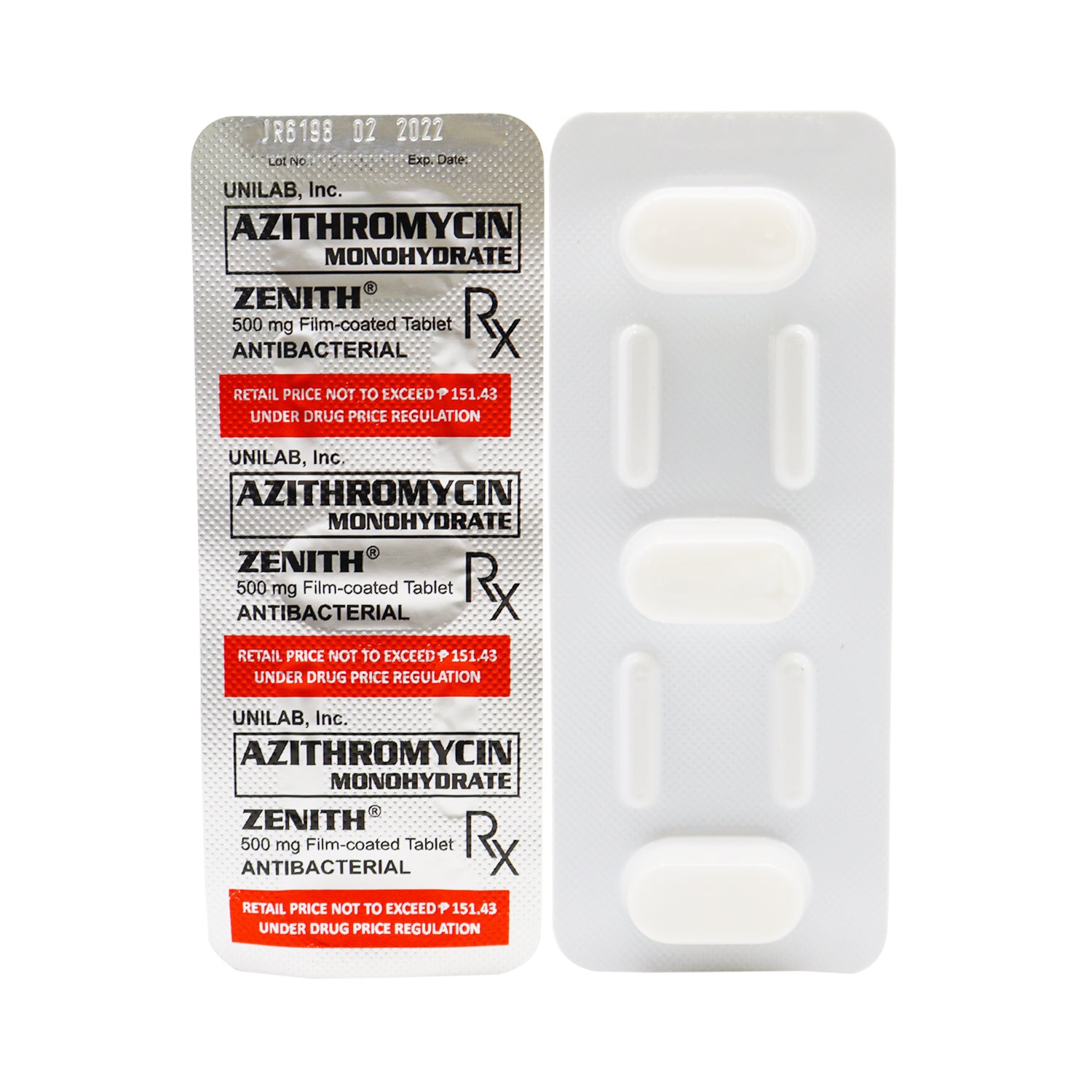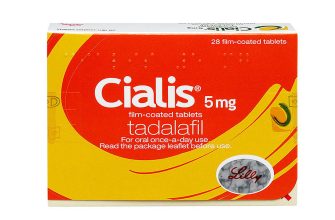Using azithromycin after its expiration date is not recommended. While some medications may still retain potency beyond their labeled date, azithromycin’s efficacy cannot be guaranteed. Taking expired azithromycin may lead to insufficient treatment of bacterial infections, potentially causing complications.
Research indicates that certain antibiotics lose effectiveness as they age. In the case of azithromycin, the breakdown of active ingredients can result in reduced antibacterial action. If you find yourself with expired azithromycin, consult your healthcare provider for alternatives. They can provide guidance tailored to your specific health needs.
Always prioritize safety and health by disposing of expired medications properly. The general recommendation for expired drugs is to return them to a pharmacy take-back program or follow local disposal guidelines. Ensuring that you have the right medication can significantly enhance your recovery process.
- Azithromycin Past Expiration Date
- Understanding Azithromycin and Its Uses
- Common Uses of Azithromycin
- Dosing Considerations
- What Does Expiration Date Mean?
- Understanding Expiration Dates
- What to Do with Expired Medications
- Possible Risks of Using Expired Azithromycin
- Health Risks
- Quality Concerns
- Factors Affecting Stability of Azithromycin
- Signs of Azithromycin Degradation
- Legal and Regulatory Aspects of Expired Medications
- FDA Guidelines on Expired Medications
- Legal Implications of Using Expired Medications
- Recommendations for Disposal of Expired Azithromycin
- Flushing Medications
- Follow Local Regulations
- Consulting Healthcare Professionals About Expired Medications
- Alternatives to Expired Azithromycin for Treatment
Azithromycin Past Expiration Date
Using azithromycin past its expiration date is not recommended. While some medications may retain potency for a period after expiration, azithromycin can begin to degrade, potentially leading to ineffective treatment. Always check the expiration date before use.
If you find yourself with expired azithromycin, disposing of it properly is the best option. Most pharmacies offer take-back programs for expired medications. This ensures safe disposal and prevents accidental ingestion.
Consult with a healthcare provider if you have questions about medication efficacy or alternatives. Properly managing your health includes being mindful of medication storage and expiration to ensure optimal outcomes.
When in doubt, obtaining a new prescription is the safest choice. Prioritize your health by using medications that are within their labeled expiration date.
Understanding Azithromycin and Its Uses
Azithromycin is an antibiotic commonly prescribed to treat bacterial infections. It falls under the macrolide class of antibiotics and works by inhibiting bacterial protein synthesis, effectively stopping the growth of bacteria. Found in various formulations, azithromycin provides versatility in treating different types of infections.
Common Uses of Azithromycin
This medication is particularly effective against respiratory infections such as pneumonia, bronchitis, and sinusitis. Azithromycin is also used for treating skin infections, certain sexually transmitted diseases, and some ear infections. The broad spectrum of activity makes it a preferred option in many cases.
Dosing Considerations
The dosage of azithromycin varies based on the type of infection and patient demographics. Typically, a single dose is sufficient for some STDs, while a longer course may be necessary for respiratory infections. Adhering to prescribed doses is critical for achieving the best outcomes and minimizing the risk of resistance.
| Condition | Typical Dosage |
|---|---|
| pneumonia | 500 mg on the first day, followed by 250 mg for 4 days |
| skin infections | 500 mg once daily for 7-10 days |
| STDs | 1 g as a single dose |
Understanding the specific use of azithromycin plays a vital role in effective treatment. Always consult healthcare providers for personalized advice and ensure adherence to prescribed treatment regimens.
What Does Expiration Date Mean?
The expiration date indicates the last date a manufacturer guarantees the full potency and safety of a medication. After this date, the effectiveness may decline, and safety cannot be assured.
Understanding Expiration Dates
Expiration dates are based on stability testing that shows how long a drug retains its quality under specific conditions. They provide key information about:
- Potency: This refers to the drug’s ability to achieve its intended effect. After the expiration date, the active ingredients may degrade, resulting in reduced effectiveness.
- Safety: While some medications may remain safe to consume after the expiration date, others can become harmful. Stability can vary based on several factors including storage conditions.
- Manufacturer Assurance: The date reflects the manufacturer’s commitment regarding the drug’s performance, with rigorous testing backing this promise.
What to Do with Expired Medications
- Check local guidelines for disposing of expired medications safely.
- Consult a healthcare professional to determine if you should still use an expired medication.
- Avoid using expired medications for serious conditions where effectiveness is critical.
Staying informed about expiration dates ensures medication safety and efficacy, supporting better health outcomes. Always prioritize discussing any concerns with a healthcare provider.
Possible Risks of Using Expired Azithromycin
Using expired azithromycin can lead to reduced effectiveness and potential health risks. The potency of the medication diminishes over time, which may result in incomplete treatment of infections. Inadequate antibiotic treatment can allow bacteria to survive, potentially leading to more serious health issues.
Health Risks
Infections may not respond adequately to expired azithromycin, prolonging illness. There’s also the risk of developing antibiotic resistance. If the drug fails to eliminate harmful bacteria, those bacteria can evolve and become resistant to treatment, making future infections harder to manage.
Quality Concerns
Expired drugs can undergo chemical changes that might create harmful byproducts. The safety profile of azithromycin post-expiration isn’t guaranteed. Side effects or adverse reactions could occur with usage beyond the expiration date. Checking storage conditions is essential; extreme temperatures or humidity can further degrade the medication.
| Risk | Description |
|---|---|
| Reduced Efficacy | Medications may not work as intended, risking inadequate treatment. |
| Antibiotic Resistance | Insufficient killing of bacteria can lead to resistant strains. |
| Potential Toxicity | Chemical changes in expired drugs could cause harmful side effects. |
| Safety Concerns | Not guaranteed effective or safe after expiration date. |
Always consult a healthcare professional before considering the use of any medication, especially if it has expired. It’s best to discard expired medications and obtain a new prescription if needed.
Factors Affecting Stability of Azithromycin
Heat, humidity, and light significantly influence the stability of azithromycin. Proper storage conditions are essential for maintaining its efficacy following the expiration date.
- Temperature: Store azithromycin at room temperature, ideally between 20°C and 25°C (68°F to 77°F). High temperatures can accelerate degradation.
- Humidity: Keep azithromycin in a dry environment. Excess moisture leads to hydrolysis, decreasing the drug’s potency.
- Light Exposure: Protect azithromycin from direct sunlight. Ultraviolet light can break down the active ingredient, resulting in reduced effectiveness.
Packaging also plays a significant role in the drug’s stability. Keeping azithromycin in its original container can provide better protection against environmental factors.
- Container Type: Amber or opaque containers are preferable as they offer better light protection.
- Airtight Seals: Ensure containers are tightly sealed to minimize air exposure and humidity absorption.
Lastly, the formulation of azithromycin affects its shelf life. Liquid forms may have a shorter stability compared to solid forms like tablets, often requiring refrigeration and specific expiration dates once opened.
Signs of Azithromycin Degradation
Check the appearance of the azithromycin tablets or suspension. Look for changes such as discoloration, moisture, or any unusual particles. These can indicate degradation.
Pay attention to the smell of the medication. An off or rancid odor may suggest that the drug has deteriorated.
Review the packaging for any signs of damage, like tears or holes. Compromised packaging can lead to exposure to moisture or air, accelerating degradation.
Assess the expiration date. If the medication is past this date, its efficacy may no longer be guaranteed. Dispose of any expired azithromycin properly.
Monitor for any unusual symptoms if the medication has been consumed after the expiration date. Changes in expected effectiveness or adverse reactions may signal degradation.
Always store azithromycin as directed. Proper storage in a cool, dry place can prevent degradation, preserving its potency.
Legal and Regulatory Aspects of Expired Medications
Healthcare providers and consumers should avoid using expired medications, including azithromycin. Regulatory bodies like the FDA do not guarantee safety or efficacy after expiration dates. Medications may degrade or become less potent as time passes, which raises both safety and efficacy concerns.
FDA Guidelines on Expired Medications
The FDA strictly regulates pharmaceuticals, including their expiration dates. These dates indicate when a medication is expected to maintain its full potency and safety, based on stability studies. After the expiration date, products do not undergo testing to ensure their safety, making their use a risk. It is advisable to discard expired medications properly rather than using or donating them.
Legal Implications of Using Expired Medications
Using expired medications may lead to legal consequences. Healthcare providers can face malpractice claims if they prescribe or administer expired drugs, as it can be viewed as a breach of standard care. Patients are encouraged to report expired medications to pharmacies, which can take necessary measures to ensure patient safety and comply with regulations.
Recommendations for Disposal of Expired Azithromycin
Returning expired azithromycin to a pharmacy is one of the safest options. Many pharmacies have take-back programs where they can properly dispose of medications. Contact your local pharmacy to check if they participate in such programs.
If returning to a pharmacy isn’t an option, disposing of azithromycin in household trash is another method. Mix the medication with an unpalatable substance like dirt, cat litter, or used coffee grounds. Place the mixture in a sealed plastic bag or container to prevent leakage and throw it away in your household garbage.
Flushing Medications
Flushing azithromycin down the toilet is discouraged unless specifically indicated on the medication label. Check FDA guidelines for any medications approved for safe flushing. Expired azithromycin typically does not fall into this category.
Follow Local Regulations
Always follow local regulations regarding drug disposal. Some communities may have specific guidelines that promote environmental safety. Reviewing these can provide further clarity on disposing of unused or expired medications.
Consulting Healthcare Professionals About Expired Medications
Consult a healthcare professional before using any expired medication, including azithromycin. They can provide personalized advice based on your health history and current condition.
Bring the expired medication to your consultation for better assessment. This will help your healthcare provider evaluate the specific risks and benefits associated with using it.
Ask about the medication’s stability, storage conditions, and potential side effects past its expiration date. Your provider may discuss alternative options or suggest appropriate dosages if you decide to proceed.
If you experience any unusual symptoms after taking an expired drug, seek medical attention immediately. Disclosure of any recent medication intake is crucial for accurate diagnosis and treatment.
Keep a record of all medications, including their expiration dates. This practice helps you manage your prescriptions effectively and reduces the chance of using expired products in the future.
Stay informed by discussing updates regarding medication safety and expiration dates regularly with your healthcare provider. This proactive approach ensures you have the latest information for your health decisions.
Alternatives to Expired Azithromycin for Treatment
Consider alternative antibiotics based on your condition and the targeted pathogens. Consult with a healthcare professional for the best options. Below are several alternatives:
- Amoxicillin – Effective against a range of bacterial infections, including respiratory and ear infections.
- Ciprofloxacin – A fluoroquinolone antibiotic useful for urinary tract infections and respiratory infections.
- Clarithromycin – Similar to azithromycin, often used for respiratory tract infections and skin infections.
- Doxycycline – Effective against a variety of infections including respiratory, urinary tract, and certain skin infections.
- Levofloxacin – Recommended for more severe bacterial infections, including pneumonia and skin infections.
Always consider possible allergies, drug interactions, and the specific type of infection when selecting an alternative antibiotic. Follow medical advice rigorously and complete prescribed courses for maximum effectiveness.
If antibiotic treatment is not suitable, other supportive therapies might be beneficial. These can include:
- Over-the-counter pain relievers – Such as ibuprofen or acetaminophen to alleviate symptoms.
- Rest and hydration – Essential for recovery from infections.
- Topical treatments – For skin infections, topical antibiotics or antiseptics may be effective.
Always consult a healthcare provider for personalized advice, especially when dealing with expired medications. Regular follow-ups ensure your treatment remains on track.







